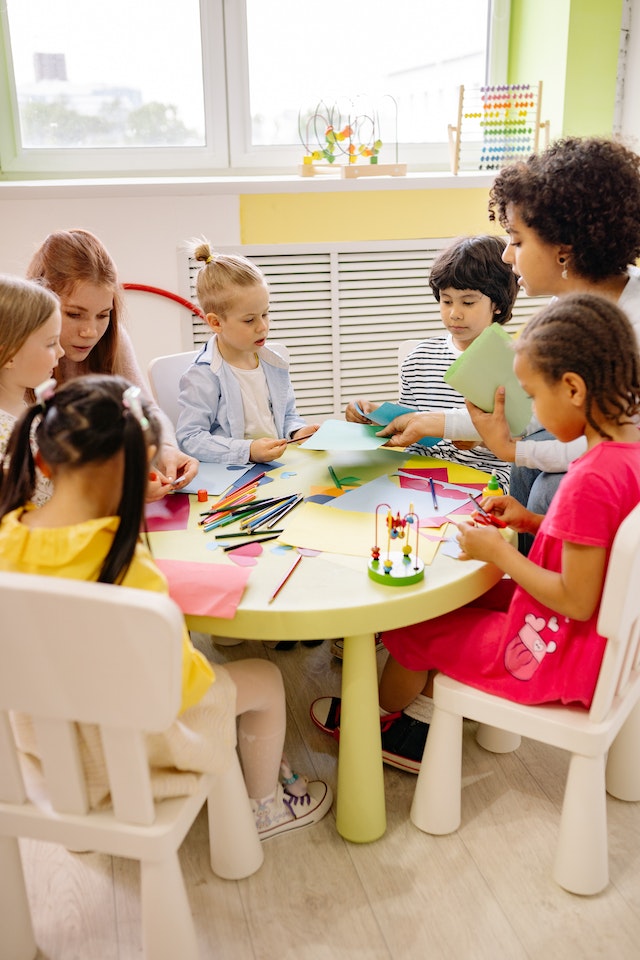Building a school for young children is a noble endeavor that requires careful planning and attention to detail. Creating a learning environment that is safe, engaging, and nurturing can have a positive impact on children’s development and future success. With many overcrowded and understaffed programs, starting a school benefits you and the community. Here are some key considerations when building a school for young children.

Location and Accessibility
The location of the school should be easily accessible for parents, with transportation options and convenient parking. It should also be safe and secure, away from busy roads or other potential hazards.
Design and Layout
The design and layout of the school should be conducive to learning and play. Classroom size, natural lighting, and ventilation should be considered. Classrooms should be large enough to accommodate the children comfortably, with appropriate play areas and facilities such as bathrooms, kitchens, and storage areas. When designing the school, you must also consider making the facilities accessible for those with disabilities.
Safety and Security
Safety should be a top priority when building a school for young children. Measures such as fire safety, earthquake readiness, and security systems should be implemented to ensure the safety of children and staff.
Curriculum and Learning Materials
The school should have a well-defined curriculum that meets the needs of young children. Various learning materials such as books, toys, and games should be available to help children develop their cognitive, social, and emotional skills.
Staffing and Training

The school should have qualified and experienced staff trained in early childhood education. Teachers should be prepared to handle the unique needs of young children and have the skills to create a positive and supportive learning environment.
Young Children and Parental Involvement
Parents should be encouraged to participate in their children’s learning and development. Regular communication between teachers and parents can help ensure children receive the support they need at school and home.
Funding and Resources
Building a school for young children requires significant financial resources. Considerations such as funding sources, budgeting, and fundraising should be considered. Finding a company like Civic Australia to service all school furniture needs in advance is a proactive step. Also, consider who you receive funding from. You should not accept funds from an agency or business that does not align with your brand or values.
Inclusion and Diversity
A school should be inclusive and welcoming to all children, regardless of their background or ability. Considering the diversity in the school’s design, including the curriculum, materials, and staffing, is essential.
Play and Outdoor Spaces
Play is an essential part of childhood development. The school should have ample play and outdoor spaces that are safe and accessible to children. These spaces can include playgrounds, gardens, and outdoor learning areas.
Technology for Young Children
Technology can play a role in early childhood education, but it should be used thoughtfully and intentionally. The school should have appropriate technology resources, such as tablets and computers, that are age-appropriate and support the curriculum. Often overlooked is the need to make technology accessible. If you are unsure how to do this, consider working with an expert who can make recommendations for your program.
Sustainability
A sustainable school is good for the environment and can save money in the long run. Considerations such as energy-efficient lighting, water-saving fixtures, and renewable energy sources should be taken into account. You can also use this to teach the children aspects of sustainability, such as recycling, composting, and more.
Community Engagement
Finally, building a school for young children can also positively impact the community. The school should be designed to engage with the local community, including partnerships with other organizations, volunteer opportunities, and community events.
Building a school for children is a worthwhile endeavor that can positively impact the community. If you are not ready to fully implement a program, consider starting small by offering an active school program. The Complete Player Charity (TCP) started this way and now has a full-scale leadership after-school and summer program for middle school youth. Here’s to YOUR success!
